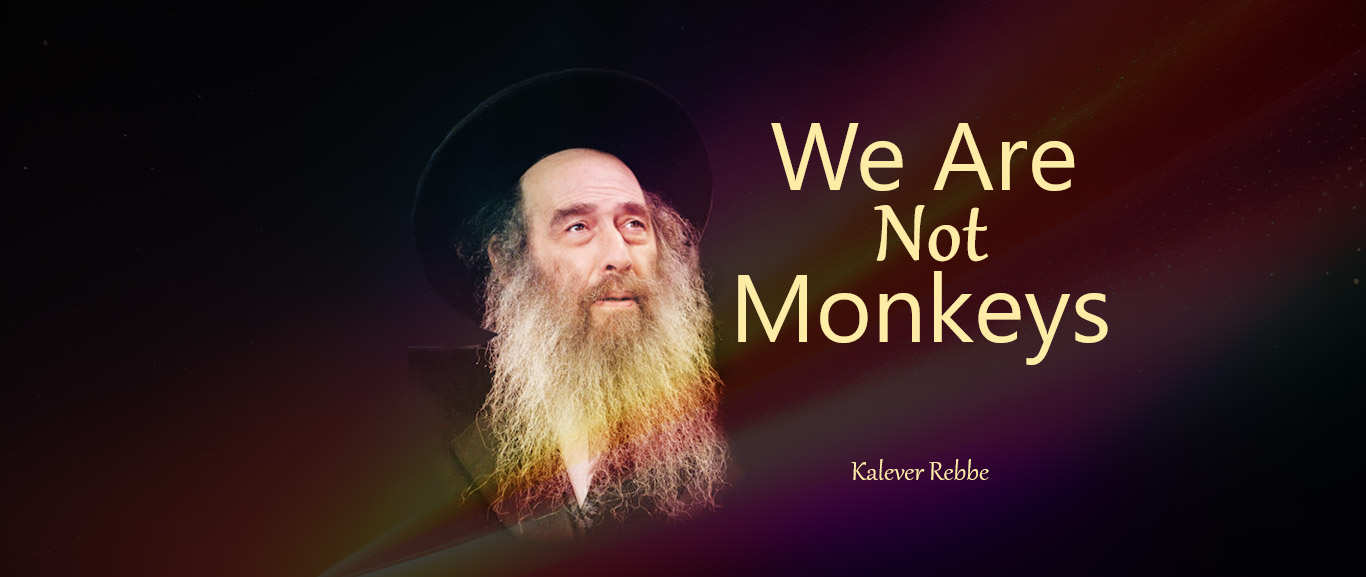
We Are Not Monkeys!
The difference between observant and secular Jews is very apparent when you look at the relationship between parents and children. Aging parents can easily be seen as a “burden” and “behind the times”. The Torah approach can be seen from Yosef’s attention to his father Yaakov...

“Thus said your son Yosef, “Hashem has made me lord of all Egypt; come down to me, do not delay.” (Bereishit 45:9)
A Grandson’s Lesson
A distinguished rabbi was once traveling on an airplane with his grandson. Nearby, there was a non-observant Jew, also accompanied by his grandson. The man observed how the rabbi’s grandson attentively cared for his grandfather, ensuring he had everything he needed, while his own grandson seemed to pay little attention to him.
Impressed by the relationship between the rabbi and his grandson, the man approached the rabbi and asked, “Please explain to me why your grandson takes such good care of you, while mine seems to ignore me.”
The rabbi smiled and replied, “Each person’s behavior is shaped by what they are taught in their early years. When my grandson was growing up, we taught him that Hashem created Adam, the first human, and that all of humanity is descended from him. Since I am older, I am closer to Adam, who was created by Hashem. Therefore, it is only natural for my grandson to show me respect and care.”
The rabbi continued, “Your grandson, on the other hand, was taught that humans evolved from monkeys over time. As a result, he sees himself as more advanced and evolved than you because he is younger, and thus, further removed from the ‘monkey’ origins. He believes that, being younger, he is more advanced in the evolutionary process and so feels less inclined to show respect to his elders.”
The Role of Parent
While differences between observant and secular Jews can be seen in many aspects of life and throughout society, it is very apparent when you look at the family structure and the relationship between parents and children.
In secular culture, many children develop a relationship with their parents that is centered around their own needs and desires. They often rely on their parents for financial support, assistance, and to help them achieve their goals. However, this relationship is typically not built on a strong foundation of respect. As these children grow older and no longer require their parents’ help — or when their parents age and need support in return — the dynamic shifts. Often, these children begin to neglect their parents, viewing them as a “burden” rather than continuing to care for them with the same devotion.
This reality has inspired countless Jews to return to the path of Torah and mitzvot.
One Ba’al Teshuvah shared that his journey began when he decided to send his children to a Jewish school. At first, his intention was simply to provide them with a deeper understanding of Torah and Judaism.
One evening, however, a moment in his kitchen changed everything. The father walked in and noticed his son standing up as he entered. Surprised, he asked, “Why are you standing up?”
“You are my father! I am standing up to show you respect,” answered his son.
Overcome with emotion, the father began to weep. In that moment, he realized the profound weight of his responsibility as a parent. He understood that he had both the ability and the obligation to guide his children. Determined to lead by example, he resolved to transform his life entirely, becoming the role model that he wanted his children to emulate.
This pivotal decision led him to embrace a life of Torah and commit fully to its values.
Spiritual Respect
There is another aspect to the lesson above. We believe that the world was created for a spiritual purpose. Therefore, faith, emunah, demands that we also respect those generations and individuals who are on a higher spiritual plane as well.
Many people perceive previous generations as primitive and unsophisticated compared to today’s standards of living. They often mock those generations for leading “simple” lives, especially when contrasted with the technological advancements of the modern era.
These feelings degrade and minimize the light of Torah that shined from those generations and the traditions that they carried and passed on to us.
An observant Jew who is guided by his emunah, understands the true essence of a person and his purpose in this world. He prioritizes spirituality over the material pursuits of life, recognizing that his neshamah, his soul, is the core of his being. The physical body, he understands, is merely a vessel — a garment, a shell — that houses the spiritually focused soul.
They don’t judge previous generations by their physical way of life, but by their spiritual achievements. Rather than focusing on what might be seen as primitive living standards, they recognize the unwavering commitment to Torah and mitzvot.
When they look at today’s world, they don’t fixate on our advanced standard of living. Instead, they see a society increasingly consumed by desires and depraved morals, forsaking religious values. They understand that the previous generations were on a higher spiritual plane and, as such, deserve our deepest respect and admiration.
This emunah strengthens our commitment to the mitzvah of honoring parents which Hashem gave us in the Ten Commandment at Mt. Sinai. And we are promised that the reward for this mitzvah is to merit that “your days may be long.” Through properly fulfilling this mitzvah we can merit long and good years.
Yosef’s Message
Yosef HaTzaddik was the first to fulfill this mitzvah with complete mesirat nefesh, self-sacrifice.
His brothers hated him. They wanted to kill him. Yet, when his father said, “Go now and I will send you to them,” he made no effort to avoid it. He immediately replied, “Here I am,” with joy. He listened to his father with complete devotion even though he knew by doing so he was risking his own life. He didn’t consider what his brothers might say or do to him when he arrived. All he knew was that he had to respect and honor his father’s instruction and that the reward for honoring one’s father and mother is “that your days may be long.”
Yosef HaTzaddik was able to do this because he had such a powerful emunah. The Midrash (Tanchuma, Parshas Vayeshev, Siman 8) quotes on the verse (Bereishit 39:3) “because Hashem was with him…” and teaches that the name of Hashem was always on Yosef’s lips, and he regularly said, “Master of the world, I trust in you, You are my protector.”
We also find several pasukim (verses) that express his faith, such as, ” How can I do this great evil and sin against Hashem?” (Bereishit 39:9) and “Hashem will answer Pharaoh’s peace…” (Bereishit 41:16) and “I fear Hashem…” (Bereishit 42:18).
This is the message that Yosef wanted his brothers to tell his father, when he instructed them to say to his father, “Hashem has made me master of all Egypt…” meaning: My faith in Hashem gave me the strength to fulfill the mitzvah of honoring my father when you told me to go to my brothers, and this brought me to be the master over Egypt.
Therefore, “Come down to me, do not delay.” Meaning, you do not need to worry that my royal duties will prevent me from finding the time to honor you and fulfill your needs properly. I am accustomed to fulfilling the mitzvah of honoring my father, and I have seen and know that one does not lose and only gains by fulfilling this mitzvah.
***
The Kalever Rebbe is the seventh Rebbe of the Kaalov Chasidic dynasty, begun by his ancestor who was born to his previously childless parents after receiving a blessing from the Baal Shem Tov zy”a, and later learned under the Maggid of Mezeritch zt”l. The Rebbe has been involved in outreach for more than 30 years and writes weekly emails on understanding current issues through the Torah. Sign up at www.kaalov.org.



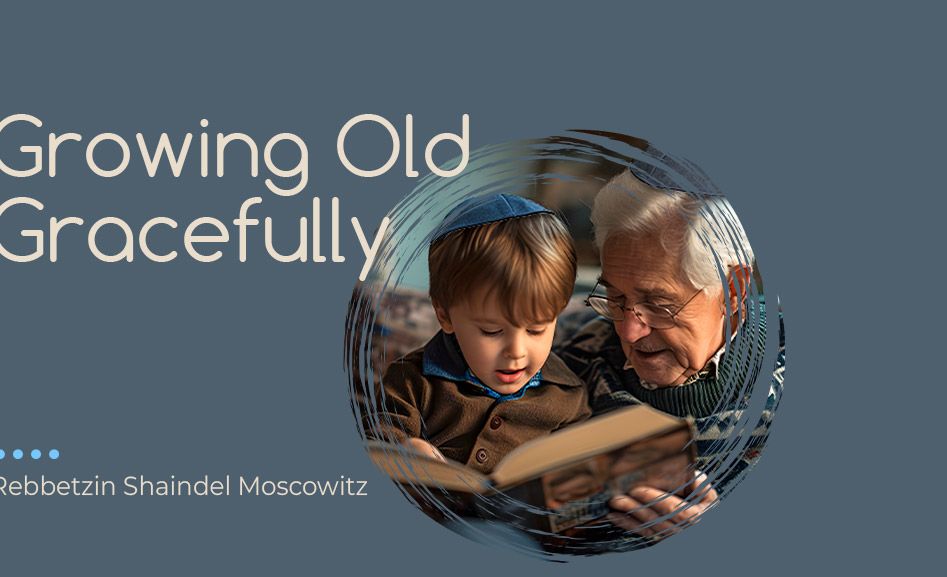

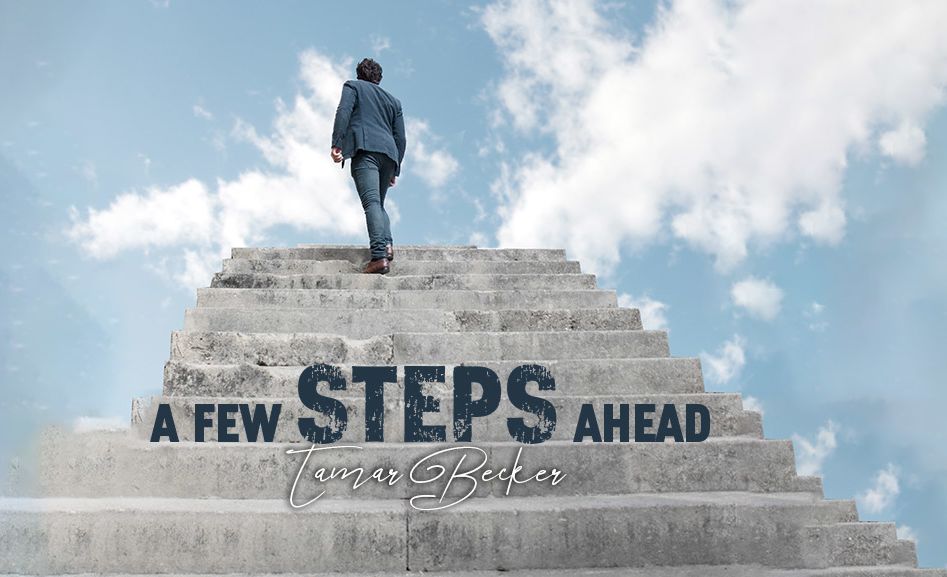
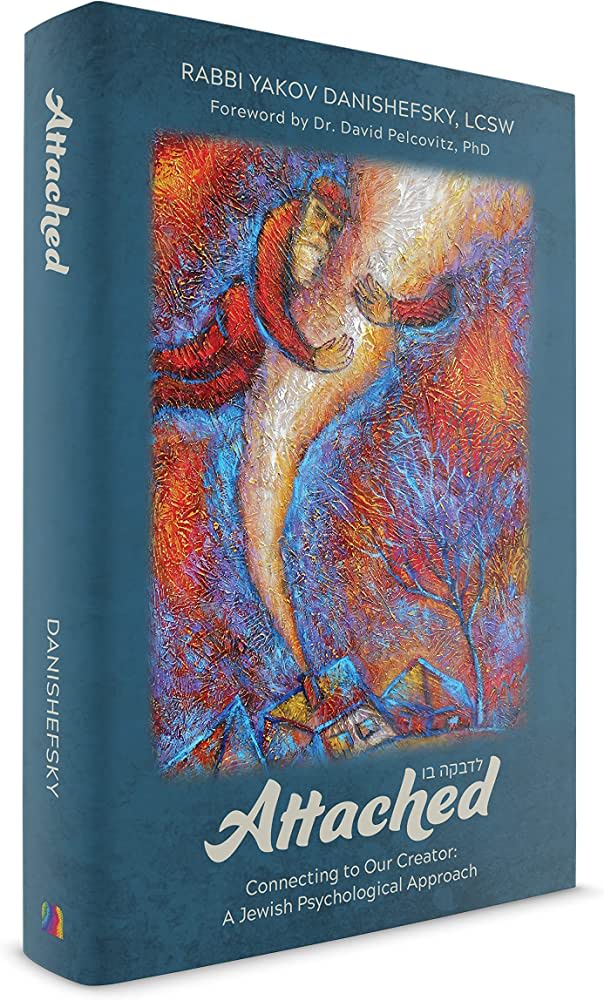
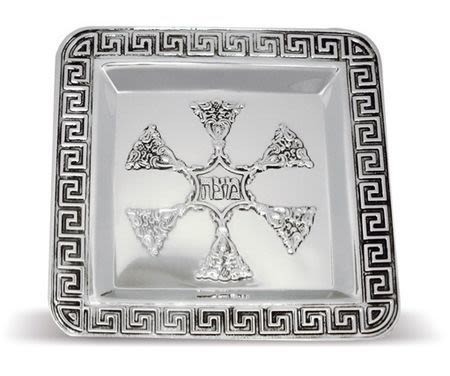


Tell us what you think!
Thank you for your comment!
It will be published after approval by the Editor.